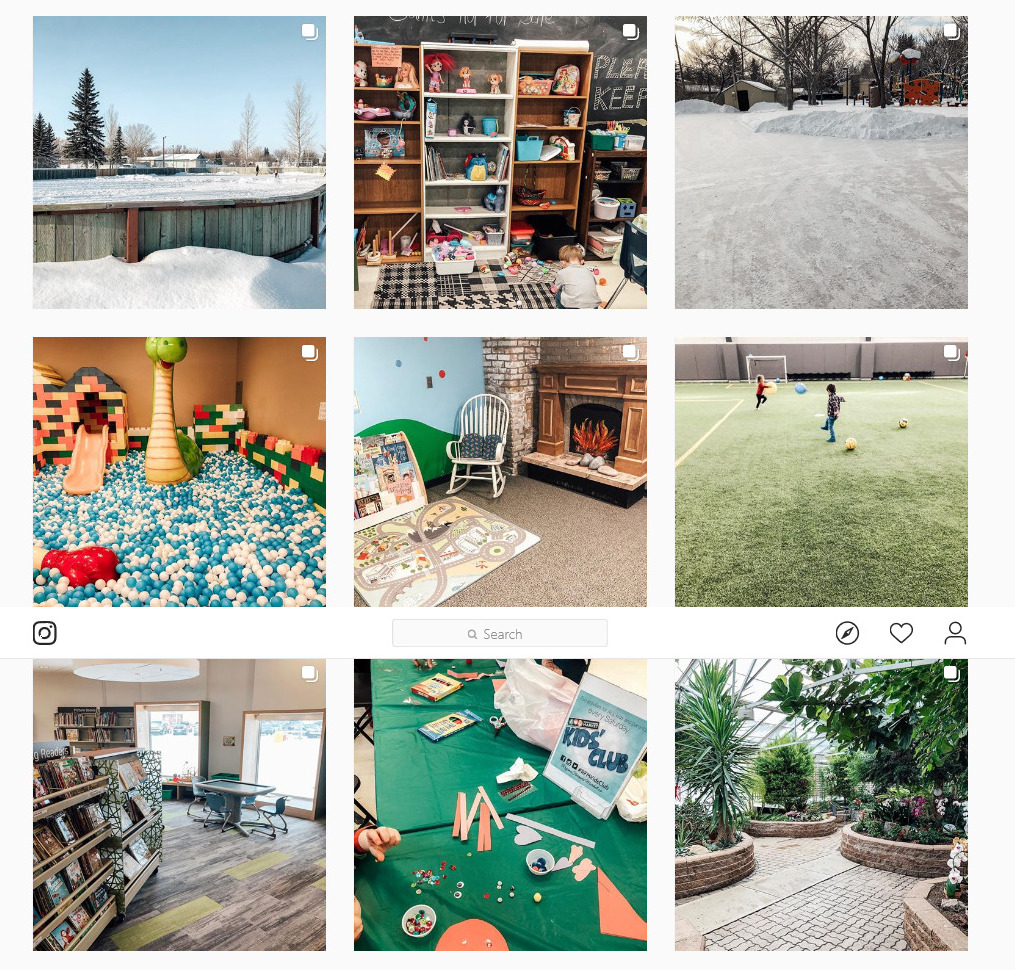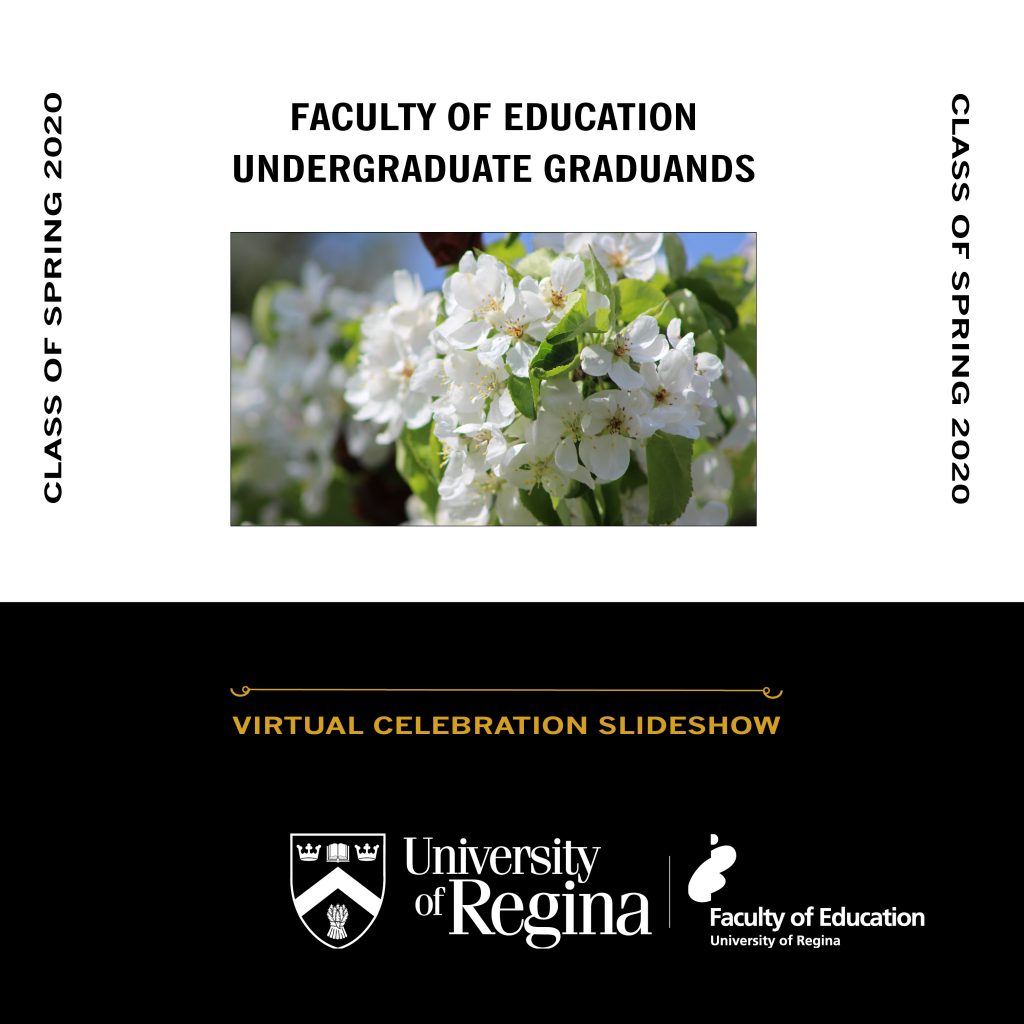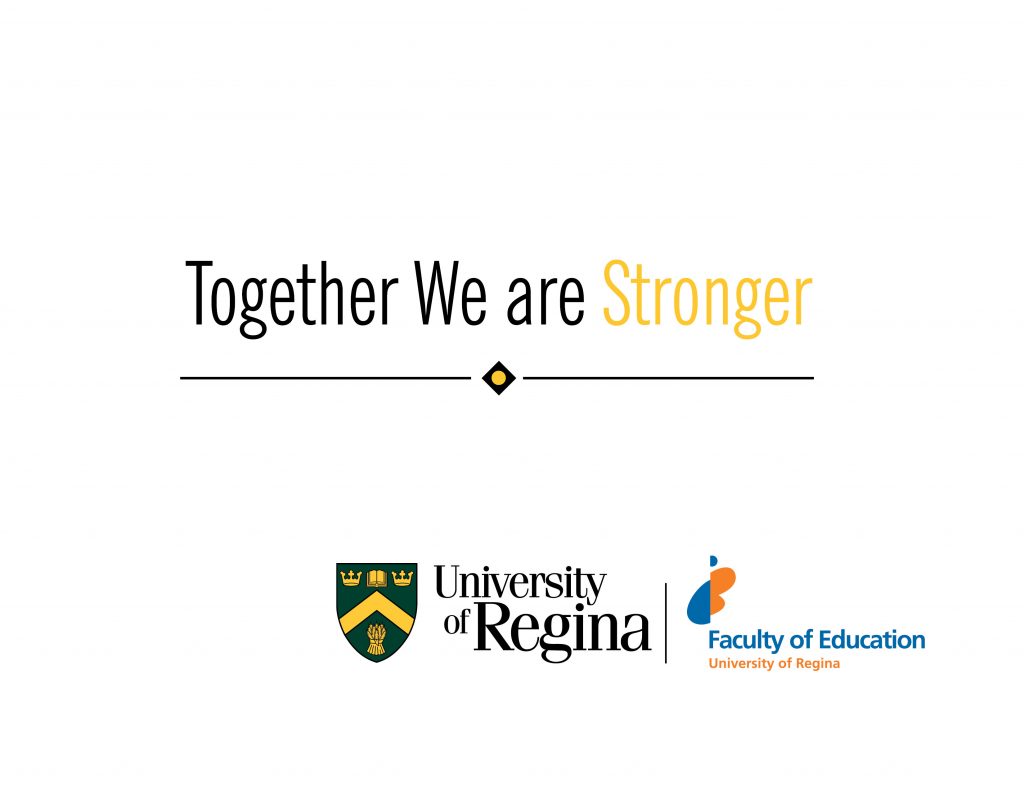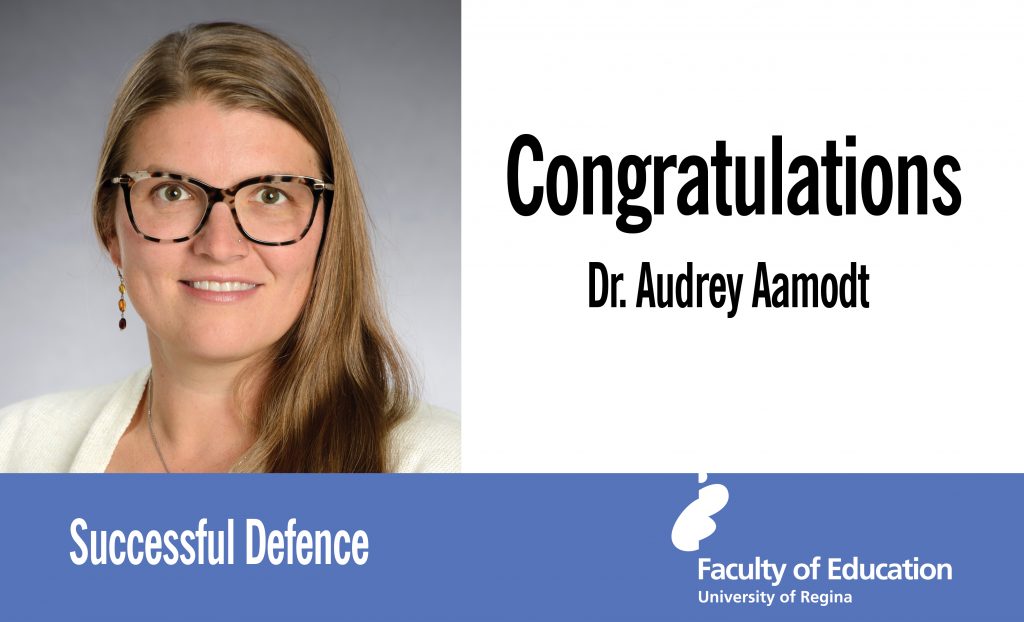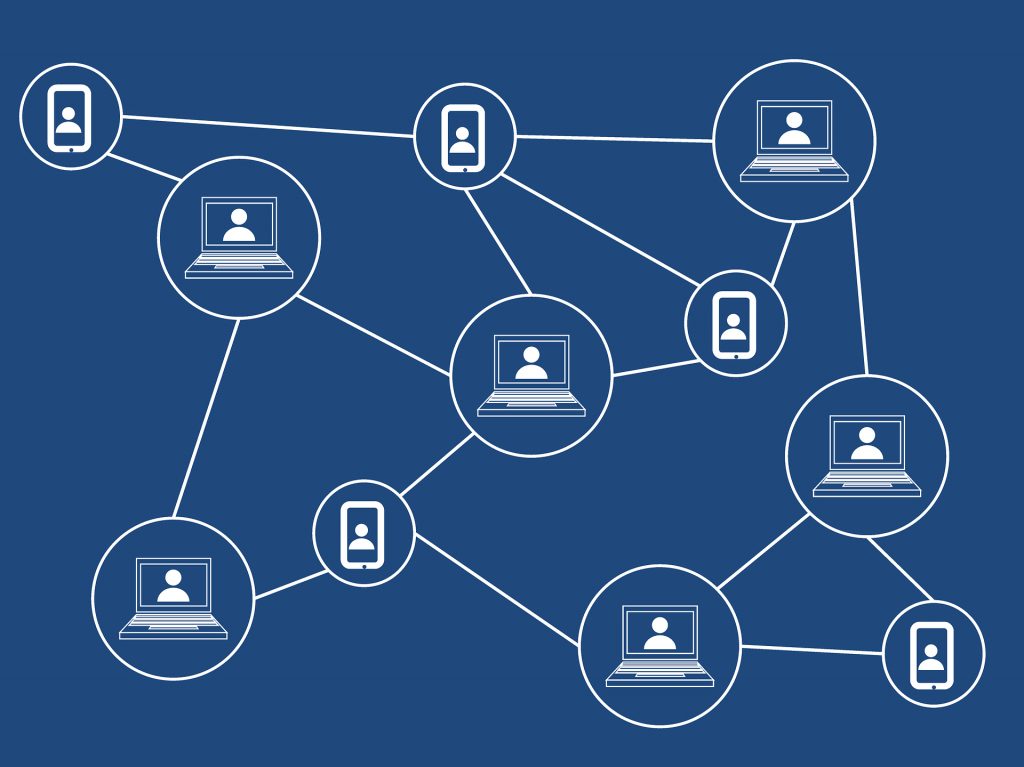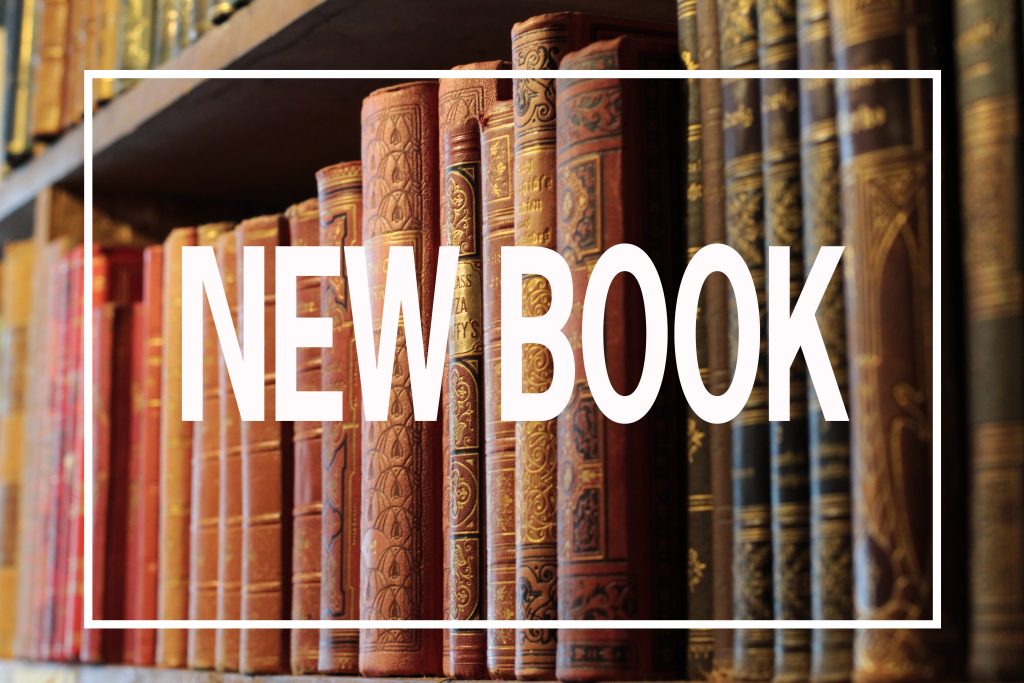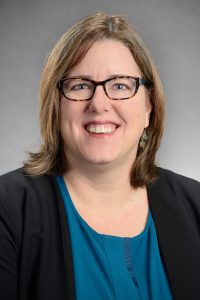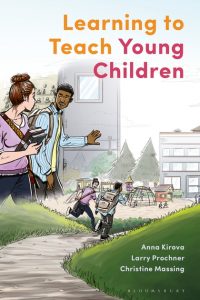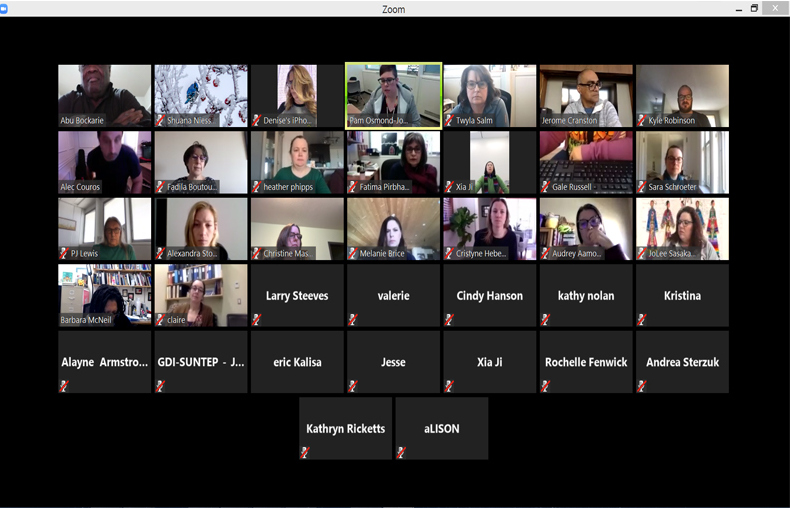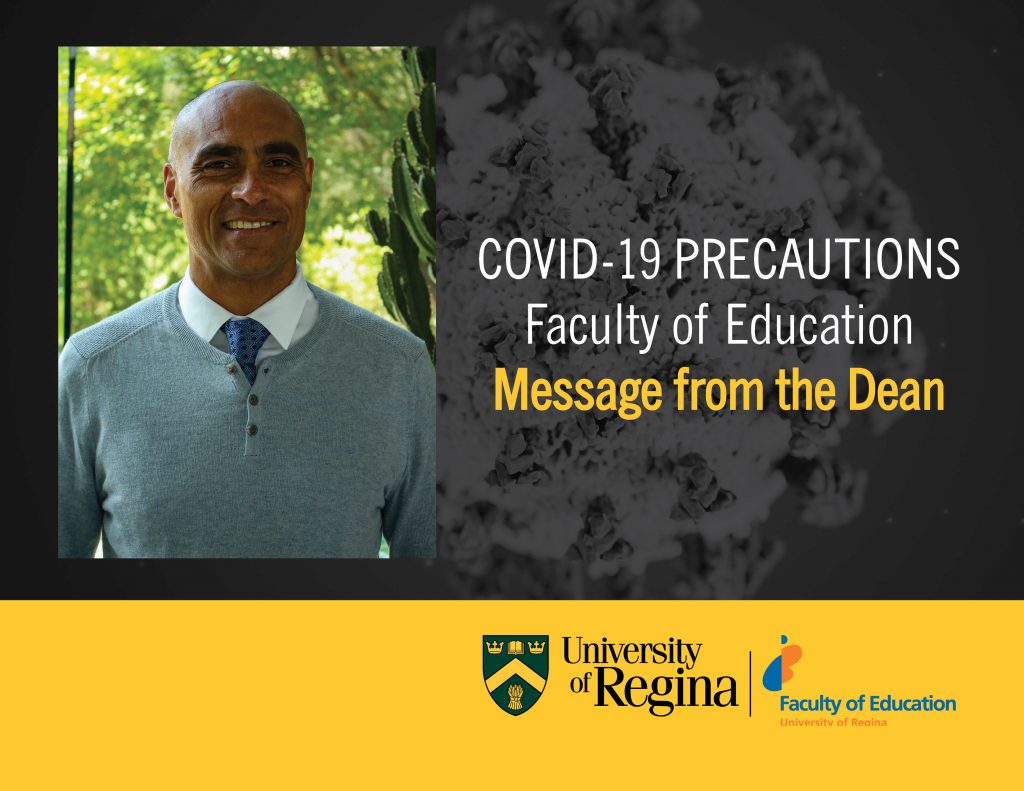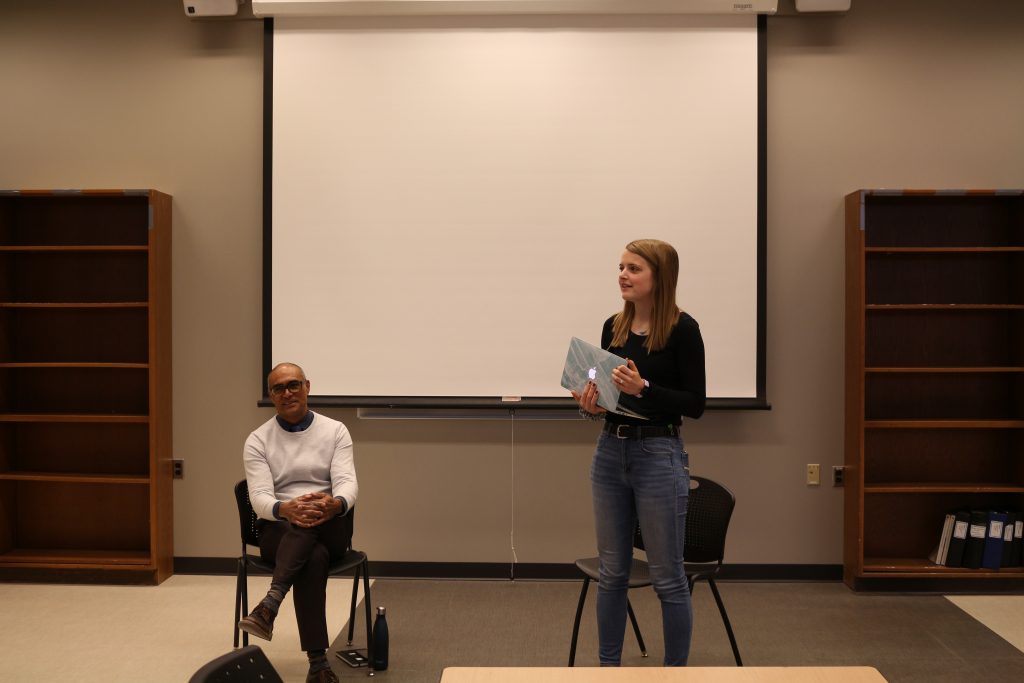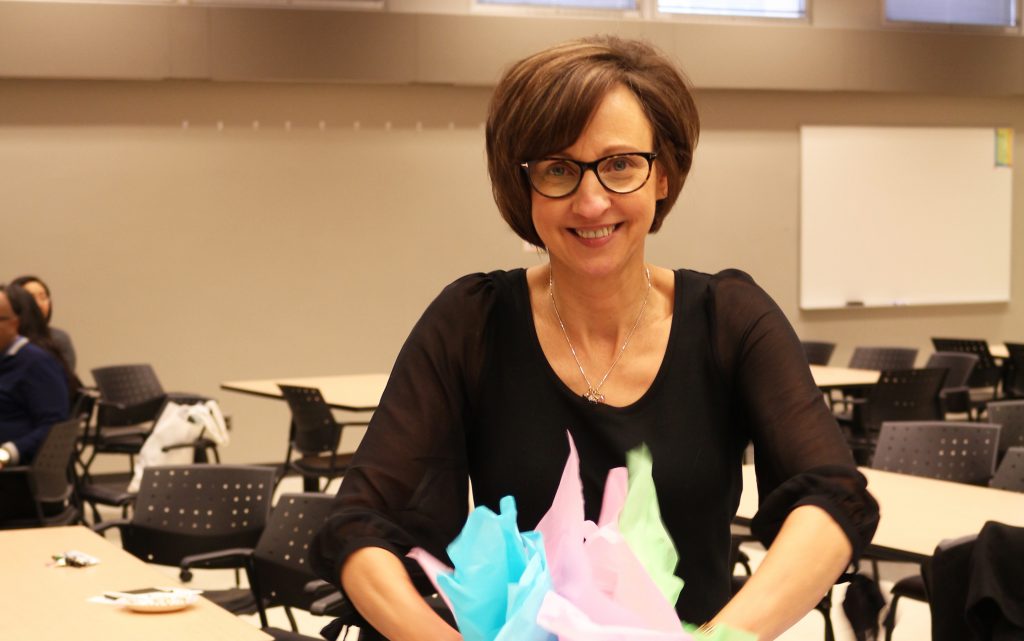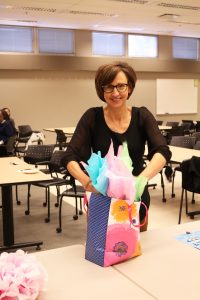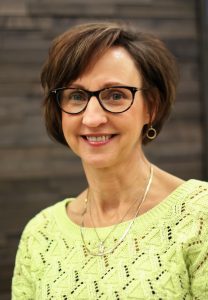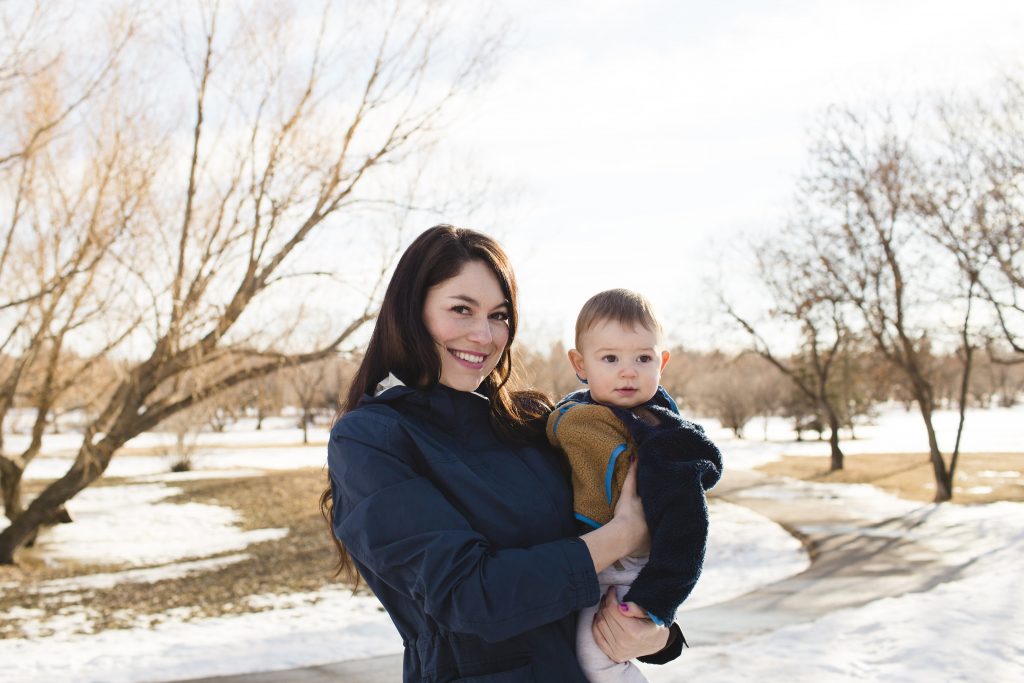
An interview (April 14, 2020) with Education master’s student Whitney Blaisdell (BEd /BA Visual Art ’14), whose research, focused around accessibility to play, has been extended by new funding focused on play during Covid-19 restrictions.
Why did you become a teacher?
I originally wanted to pursue teaching as a stepping stone to getting a master’s in library science. I quickly fell in love with teaching, however, and I’m fascinated with education.
What did you do after graduating with your BEd/BA?
I took a position teaching with the Regina Public School Board. I was offered a continuing contract while still serving my first temp contract. I’ve now been teaching for six years. I’ve been inspired by some of the strong teachers I’ve worked alongside and was encouraged to begin grad studies, which I began in the summer of 2017. As previously mentioned, I’m quite fascinated by the field of education. How a society pursues education: Who is trusted to educate, how they do it, why they teach the things they teach, what is exactly considered an “education”—these are all questions that I’m curious to explore. I’ve of course narrowed my graduate focus but continue to try to keep these larger questions in mind as I study. Education is a field that should be carefully scrutinized and held to a high standard. It’s an honour to have the ability to pursue graduate studies in such an interesting and important subject.
Why did accessibility to play become an important issue for you?
The first graduate course I took was taught by Karen Wallace and Patrick Lewis and it had a heavy emphasis on play, art, and story. This course, and some of Patrick’s writing he shared with his students, has had quite an impact on me as both a teacher and mother. The “erosion of play” (Lewis, 2017) has weighed heavily on my mind since taking the course.
Why did you choose to develop the Project Play YQR as part of you research for your thesis?
A friend offered me an idea to create a map of playspaces around the city. I loved the idea of constructing a functional project out of my research, and have taken it a bit further. I learned quite quickly that you can have the perfect play space, but a physical space only has so much to do with one’s ability to play. There’s a lot of privilege to play and many barriers between people and playfulness, as well as many factors that can help people feel and be playful. Considering how important play is, I wanted to explore these factors.
What insights have you gained from your research thus far?
Answering this question is so tricky—if I could do it simply I’d be a lot further along in my thesis. There is a lot going on when you see someone play. It’s complicated and beautiful. People have offered an immediate connection between the birth of their children and play. One’s labour and birth, even their pregnancy, has a profound impact on parents’ ability to attach, bond with, and play with their infants. These feelings—anxiety, being out of control, fear, shame, but also potentially empowerment or magic—they last a long time. It’s amazing how many parents (fathers included) of children as old as nine will bring up a traumatic birth of a child as a barrier to play.
Money comes up as a barrier to play even for people who are affluent. The commercialization of play (Lewis also describes this as a barrier in 2017) is far-reaching. Parents describe how their children’s expensive activities inform their own social circles. At best, structured activities for children do certainly offer a fun outing for families, a chance to socialize and meet friends, physical activity, and skill development. They can be a great facilitator for play if balanced well and a lot of accidental play happens around these activities as siblings congregate and run around the hockey arenas, etc. At worst, however, structured activities for children can become intensely competitive, performance-centred, shame-inducing and othering environments for children and their families.
A strong mental well-being facilitates play. I’m currently trying to access and analyze what exactly helps people get into a mental space that is free and open to play. High expectations and sexist treatment of women and mothers doesn’t help. Trauma, which appears incredibly common, doesn’t help. Great maternal health care providers help a lot. A strong network and community supporting a new family helps a lot. Seeing other people be messy and unapologetically playful appears to be a catalyst for one’s own playfulness. One could almost say that play is contagious. Conversations around the importance of play are important—and that’s something the Play YQR platform helps to provide. I try to advertise for play. It’s easy to forget just how magical unstructured play, particularly in nature, is.
What do you anticipate and hope for regarding your research impacts for your thesis work?
I hope that my thesis work has an opportunity to have an impact. That’s most likely an embarrassingly typical naïve, grad-student thing to say. There’s just a lot that’s coming up—play is an important topic to explore and there’s a lot of passion surrounding it. Some who tell me their stories express that they’re just happy someone is listening to them. They talk about trauma, birth, relationships, mental health, play spaces, programming…and together we daydream and re-imagine a community based around play-accessibility. A lot of what we discuss is possible. I suppose I hope that the community will listen to them alongside me. Part of why I incorporated a non-profit (Project Play YQR) is to continue co-constructing accessibility to play in and around Regina.
Project Play YQR recently received $5000 funding from the U of R’s Community Research Unit in partnership with the Regina Early Learning Centre (ELC) for a COVID-19 community-focused research project. How did this project/partnership come about?
The ELC is a fantastic organization. Since I incorporated Project Play YQR last summer, I’ve been working hard to highlight ELC’s services for the community. The Family Centre Coordinator Monica Totton is supportive and curious about the research findings and how they could potentially help improve the ELC programs and spaces for the community and I am happy to share findings with her. Monica truly cares about early childhood services in the community and seems to take every opportunity to do even better work. It’s refreshing and inspiring. Pre COVID-19 she had gently approached me about potentially doing some community research with them in the future surrounding a different topic. When this pandemic started, we connected again as we were both concerned with the effects the lack of playspaces and programming could have on people and their ability to play. The ELC also typically reaches a vulnerable demographic so we are anticipating that this research will help them to still have a positive effect on some of these families going forward.
As the Principal Investigator, what will the research involve?
The research will mostly use grounded theory, which is the method I use for my thesis research. It will be a bit autoethnographic naturally, which means that I will use how this pandemic has affected my own ability to play as an entry point to then explore openly and develop questions for exploring with other people. I am applying grounded theory in a way that resembles how Kathy Charmaz applies it. I will ask questions, listen to stories, analyze responses, and continue exploring depending on what new questions and patterns are emerging. Once I feel I’ve circled back enough times and the patterns are starting to repeat, I’ll narrow my intake of responses and focus on analysing and writing about what is being constructed. Through this process I may find a lot more interesting information than I originally thought I had, and may need to open the study back up for more responses if there’s an interesting pattern. Grounded theory is like those coin donation bins where you put the coin in and it circles around and around and its spiral grows narrower and narrower until it drops and every once in a while the coin starts moving upwards again. It’s not linear but it’s so much fun. I am hoping to put together a report to share that includes different ways that people are finding time and space to play during this time. Participants will be co-constructing this report together in community.
With play spaces no longer accessible during Covid-19 restrictions, and home becoming the play space, how does the current context affect the research and your perspective on the topic?
This is exactly our concern. The playspaces and programming around the city are important. When I ask people about play, they talk about going out. They talk about gathering with people. They talk about maintaining their own playfulness and passions which depends on other people stepping in to help with their children. What’s happening in our communities, although entirely necessary, will most certainly have an impact on play. We are eager to explore these impacts, and also eager to create greater accessibility to play in the home, whatever that may look like.
As for the technical side of the research: to keep everyone safe, all of the co-constructing of the research will be contactless, whereas I’ve done face-to-face conversations for my own thesis in the past. I’ve also used social media for my thesis and will be continuing to use that for this new project. We are hoping that, because the ELC is connected with some families that they do home visits with, we can incorporate these families in this research too. We are still working out how everything will look and of course will be held to a high ethics standard regarding every decision we make.
What do you anticipate and hope for regarding your research impacts?
People have shared that even just the presence of the Play YQR organization and research, since I share on social media (Play YQR on Instagram), helps to create a greater awareness and elevate the importance of play in their minds. I hope that this research can therefore facilitate a community consciousness of play. I am also excited for the collaboration with the ELC. This research will be a great means for them to reach more people, find out if and how they can improve their services, help clients in a new way, and potentially have an even stronger lasting impact on families that can’t typically access their physical spaces and services. Although this study is responsive to our current situation, the results will be relevant after the ELC spaces are open again, and for as long as our organizations continue operating. Part of our contract is that I will also be working with ELC staff to share information and do some education surrounding what ends up being co-constructed.
I anticipate that we will also develop a clear picture of what is actually helping people to be more playful at this time, and be able to share this information with the community. The community constructs and benefits from the project. I’ve seen some organizations adapt to the pandemic response by going virtual with all their programming and I’m curious to find out what else organizations can do to support families at home during this time (and after) without being in direct contact. I’ve found out through my thesis that part of the allure of physical playspaces is that when people visit them, they are at least temporarily relieved of their domestic tasks they face around their home. It is challenging for some folks to be playful at home where they struggle to relieve their mind of the mess, laundry, and uncooked meals they’re surrounded by. They depend on an actual physical compartmentalization for play via visiting playspaces. Some people of course are also able to work from home right now, which means most people are managing work, home tasks, and play all in the same environment. It’s necessary to understand what effect this will have on families and how they can be supported at home. I’m also curious to find out if working from home is a facilitating factor to play for any families.
What has been your experience of researching as a student at the U of R?
I’m thrilled with my experience in grad school at the U of R. The committee who supports my work consists of Dr. Marc Spooner, who is my supervisor; Dr. Valerie Triggs; and Dr. Patrick Lewis, who is mentioned above. It’s an honour to also have Patrick on the board of directors of Project Play YQR.
My committee has been inspiring and supportive. I’m grateful for their high standard for quality of work. It’s not lost on me how fortunate I am to have the committee members that I do. I’m also of course grateful to Lynn Gidluck from the Community Research Unit and to Monica Totton from the Regina Early Learning Centre for this opportunity and collaboration. This is an opportunity to do good work.
